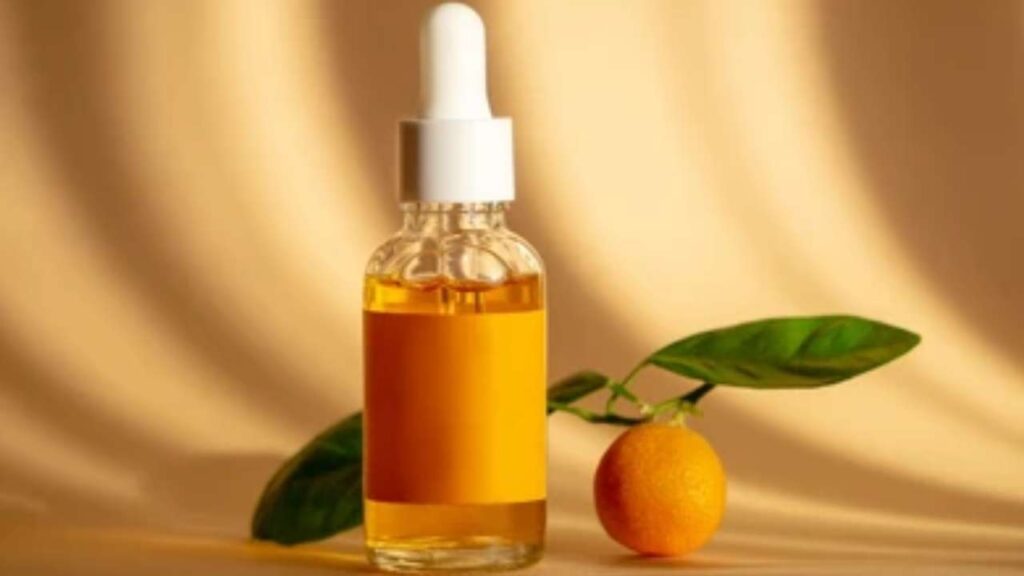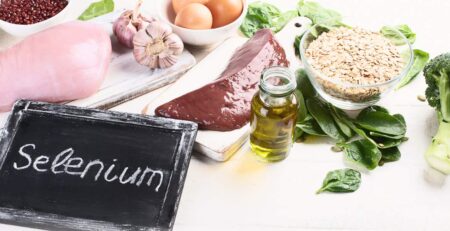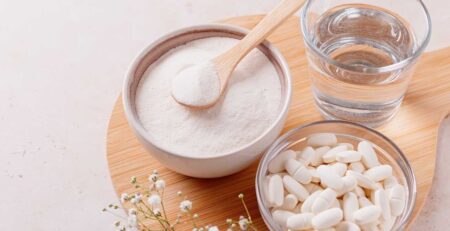Is Vitamin C An Exfoliator? Guide For Healthier, Brighter Skin
Exfoliation is crucial in any skincare routine, as it helps remove dead skin cells and promote a radiant complexion. Vitamin C, a potent antioxidant, has been gaining popularity in the skincare world for its numerous benefits, including its exfoliating properties.
In this guide, we’ll delve into the science behind Vitamin C, compare it to other exfoliating methods, and provide valuable tips on incorporating Vitamin C exfoliation into your skincare routine to unveil your most luminous skin.
Understanding Vitamin C and Its Benefits
Vitamin C, also known as ascorbic acid, is a water-soluble vitamin and potent antioxidant that plays a vital role in various bodily functions.
In skincare, Vitamin C is available in several forms, the most common ones being L-ascorbic acid, magnesium ascorbyl phosphate, ascorbyl palmitate, and sodium ascorbyl phosphate.
Each form has unique properties, but L-ascorbic acid is the most potent and effective.
The Role of Vitamin C in Skin Health
Antioxidant Properties
Vitamin C is a powerful antioxidant that helps neutralize free radicals caused by environmental factors like UV rays, pollution, and cigarette smoke. Doing so protects the skin from oxidative stress and premature aging, reducing the appearance of fine lines, wrinkles, and age spots.
Collagen Production
Vitamin C is critical in collagen synthesis, a protein that maintains the skin’s firmness and elasticity. By boosting collagen production, Vitamin C helps keep the skin youthful and plump, reducing the visibility of wrinkles and sagging.
Skin Brightening
Vitamin C has a skin-brightening effect, inhibiting melanin production, the pigment responsible for skin color. This property helps fade hyperpigmentation, dark spots, and acne scars, creating a more even and radiant complexion.
How Vitamin C Acts as an Exfoliant?
Encouraging Cell Turnover
Vitamin C aids in the natural cell turnover process, where new skin cells replace old and dead ones. This process helps reveal a fresh layer of skin, improving the skin’s overall texture and tone.
Breaking Down Dead Skin Cells
As a mild acid, Vitamin C can gently break down the bonds between dead skin cells, making removing them from the skin’s surface easier. This exfoliating action promotes a smoother, brighter, and more even complexion while allowing other skincare products to penetrate the skin more effectively.
Vitamin C Exfoliation vs Other Exfoliating Methods
Chemical Exfoliants (e.g., AHAs, BHAs)
Alpha Hydroxy Acids (AHAs) and Beta Hydroxy Acids (BHAs) are popular chemical exfoliants that dissolve the bonds between dead skin cells and promote cell turnover.
Examples of AHAs include glycolic acid and lactic acid, while salicylic acid is a well-known BHA. These acids vary in strength, making some more suitable for sensitive skin than others.
While also considered a chemical exfoliant, vitamin C acts more gently on the skin than some AHAs and BHAs. Moreover, Vitamin C offers additional benefits like boosting collagen production and brightening the skin, which may not be as prominent in traditional chemical exfoliants.
Physical Exfoliants (e.g., Scrubs, Brushes)
Physical exfoliants rely on mechanical action to remove dead skin cells from the skin’s surface. Examples include facial scrubs with granules or beads, brushes, and exfoliating clothes.
While these methods can effectively remove dead skin cells, they can also be harsh, causing micro-tears and irritation, especially for sensitive skin.
Vitamin C exfoliation offers a gentler alternative to physical exfoliants, as it relies on its mild acidic properties to break down dead skin cells without causing physical abrasion.
Pros and Cons of Using Vitamin C for Exfoliation
Pros
- Gentle exfoliation: Vitamin C provides a milder exfoliating experience than chemical and physical exfoliants, making it suitable for sensitive skin.
- Antioxidant benefits: As a powerful antioxidant, Vitamin C offers protection against environmental stressors and premature aging.
- Boosts collagen production: Vitamin C helps improve the skin’s firmness and elasticity by promoting collagen synthesis.
- Skin brightening: Vitamin C can even out skin tone and fade hyperpigmentation, resulting in a radiant complexion.
Cons
- Stability: Vitamin C, particularly L-ascorbic acid, is notorious for its instability and can oxidize quickly when exposed to light, air, or heat. This may require more frequent product replacement or careful storage.
- Possible irritation: Though generally considered gentle, high concentrations of Vitamin C may irritate some individuals. Patch testing and starting with lower concentrations are recommended.
- Incompatibility: Vitamin C, particularly L-ascorbic acid, may not be compatible with some skincare ingredients, such as niacinamide and retinol. It is essential to research product compatibility to avoid potential issues.
Choosing the Right Vitamin C Exfoliating Product

When selecting a Vitamin C exfoliating product, it is essential to consider your skin type and sensitivity level.
For sensitive skin, start with a lower concentration of Vitamin C (around 5-10%) and gradually increase if your skin tolerates it well. A 10-20% concentration may be more suitable for normal to oily skin.
Serums
Vitamin C serums are lightweight, fast-absorbing liquids that deliver a high concentration of active ingredients to the skin. Serums are ideal for those looking for potent exfoliation and maximum benefits. When selecting a Vitamin C serum, look for a stable form of Vitamin C, like magnesium ascorbyl phosphate or sodium ascorbyl phosphate.
These forms are less likely to oxidize than L-ascorbic acid, ensuring a longer shelf life. Opt for a serum packaged in a dark, air-tight container to minimize exposure to light and air, which can cause degradation.
Creams
Vitamin C creams or moisturizers are thicker than serums and typically contain fewer active ingredients. These products are excellent for dry or sensitive skin, providing exfoliation and hydration.
Look for a cream that combines Vitamin C with other skin-nourishing ingredients like hyaluronic acid or ceramides to enhance hydration and maintain the skin barrier.
Scrubs and Masks
Vitamin C scrubs and masks offer a more targeted exfoliating experience, often combining Vitamin C with physical exfoliating agents or other chemical exfoliants for a more intensive treatment.
These products can be used once or twice a week for deeper exfoliation. Ensure the physical exfoliating agents in the scrub are gentle and non-abrasive to avoid damaging the skin.
For masks, opt for formulations containing soothing and hydrating ingredients to counter any potential irritation.
Incorporate Vitamin C Exfoliation into Your Skincare Routine
Vitamin C exfoliating products are typically best applied during your morning skincare routine. This is because Vitamin C can boost the effectiveness of your sunscreen by neutralizing free radicals generated by sun exposure, offering added protection against UV damage.
However, if your chosen Vitamin C product is incompatible with other morning skincare products or causes sensitivity when exposed to sunlight, you can also apply it during your evening routine.
How Often to Exfoliate with Vitamin C?
The frequency of exfoliation with Vitamin C depends on your skin type and the product’s concentration.
For sensitive skin or those new to Vitamin C exfoliation, start by applying the product every other day or twice a week, and monitor your skin’s reaction. If your skin tolerates it well, you can gradually increase the frequency of daily application.
Daily application of Vitamin C exfoliants is generally well-tolerated for normal to oily skin. However, always listen to your skin and adjust the frequency if you experience irritation or discomfort.
Combining Vitamin C Exfoliation with Other Skincare Products
To maximize the benefits of Vitamin C exfoliation, it is essential to use complementary skincare products. After applying your Vitamin C exfoliant, follow up with a hydrating serum or moisturizer to replenish moisture and maintain your skin barrier.
In the morning, always use broad-spectrum sunscreen with an SPF of 30 or higher to protect your skin from UV damage, as exfoliation can make your skin more sensitive to the sun.
Be cautious when combining Vitamin C with other active ingredients, as certain combinations can cause irritation or reduce the effectiveness of the products.
For instance, L-ascorbic acid may not be compatible with niacinamide, retinol, or other strong acids. If unsure about product compatibility, consult a dermatologist or perform thorough research before combining active ingredients.
Tips for Maximizing Results and Minimizing Irritation
- Start with a lower concentration: When introducing Vitamin C exfoliation, begin with a lower concentration and gradually increase it as your skin adjusts.
- Patch test: Always perform a patch test on a small area of your skin to check for any adverse reactions before applying the product to your entire face.
- Listen to your skin: Adjust the frequency of exfoliation based on your skin’s needs and response to the product. If you experience irritation, reduce the frequency or switch to a milder formulation.
- Store products properly: Keep your Vitamin C exfoliating products in a cool, dark place, and make sure they are tightly sealed to preserve their potency and effectiveness.
- Be patient: As with any skincare product, it may take several weeks to see noticeable results from Vitamin C exfoliation. Consistency and patience are key to achieving healthier, brighter skin.
DIY Vitamin C Exfoliating Treatments
Homemade Vitamin C Exfoliating Mask Recipes
Creating your Vitamin C exfoliating mask can be a cost-effective and customizable way to incorporate this powerful ingredient into your skincare routine. Here are a couple of simple recipes to try:
Vitamin C and Honey Mask
- 1/2 teaspoon L-ascorbic acid powder (available at health stores or online)
- 1 tablespoon raw honey
- 1/2 teaspoon aloe vera gel
Mix the ingredients in a small bowl until well combined. Apply the mixture to clean dry skin, avoiding the eye area. Leave on for 10-15 minutes, then rinse with lukewarm water and follow up with your regular skincare products.
Vitamin C and Yogurt Mask
- 1/2 teaspoon L-ascorbic acid powder
- 1 tablespoon plain yogurt
- 1/2 teaspoon finely ground oatmeal
Combine the ingredients in a small bowl. Apply to clean dry skin, avoiding the eye area. Leave the mask on for 10-15 minutes, then rinse with lukewarm water, using circular motions for exfoliation. Follow your regular skincare routine.
Creating a Vitamin C Scrub
For a gentle Vitamin C exfoliating scrub, try the following recipe:
- 1/2 teaspoon L-ascorbic acid powder
- 1 tablespoon coconut oil or jojoba oil
- 1 tablespoon finely ground sugar or sea salt
Mix the ingredients in a small bowl until well combined. Apply to clean, damp skin, massaging gently in circular motions for 1-2 minutes. Rinse with lukewarm water and follow with your regular skincare routine.
Note that this scrub should be used cautiously on sensitive or acne-prone skin, as the physical exfoliation may irritate.
Precautions and Considerations for DIY Treatments
While DIY Vitamin C exfoliating treatments can be effective, it’s essential to take the following precautions:
- Use fresh ingredients: Ensure your L-ascorbic acid powder is fresh and has not oxidized to maintain effectiveness.
- Proper storage: Store any leftover DIY treatments in an airtight, dark container in the refrigerator to preserve their potency. Use the homemade products within one week for the best results.
- Sensitivity test: As with any new skincare product, perform a patch test on a small area of your skin before applying the DIY treatment to your entire face.
- Be mindful of concentrations: When creating DIY treatments, be cautious with Vitamin C, as too high a concentration can cause skin irritation. Adjust the amount of L-ascorbic acid powder according to your skin’s tolerance level.
- Maintain a balanced routine: Remember that DIY treatments should complement, not replace, a well-rounded skincare routine. Use your regular skincare products and homemade Vitamin C exfoliants for the best results.
Conclusion
Vitamin C exfoliation offers a gentle and effective way to achieve healthier, brighter, and more radiant skin.
You can harness its full potential by understanding the science behind Vitamin C and its benefits, comparing it to other exfoliating methods, and learning how to incorporate it into your skincare routine.
Whether you opt for store-bought products or DIY treatments, consistency and patience are crucial to unveiling your most luminous skin.
Always listen to your skin, and don’t hesitate to consult a dermatologist for personalized advice to ensure the best results on your journey to glowing, rejuvenated skin.












Leave a Reply